Douglas's recent articles
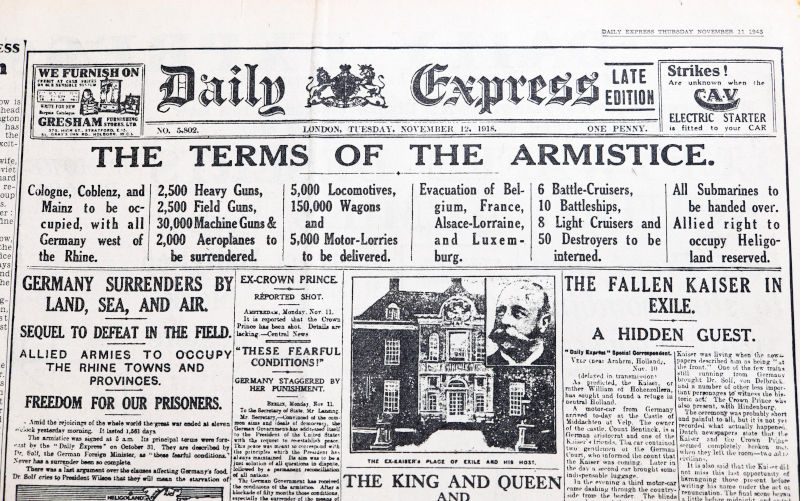
21 October 2025
The armistice of 1918 and the 'ceasefire' of 2025
Remembrance Day is coming. More accurately it is Armistice Day. The armistice between Germany and the Western Powers was signed at Compiègne in France on the morning of 11 November 1918, after four years of war. Sadly, there are heart-chilling parallels to today.
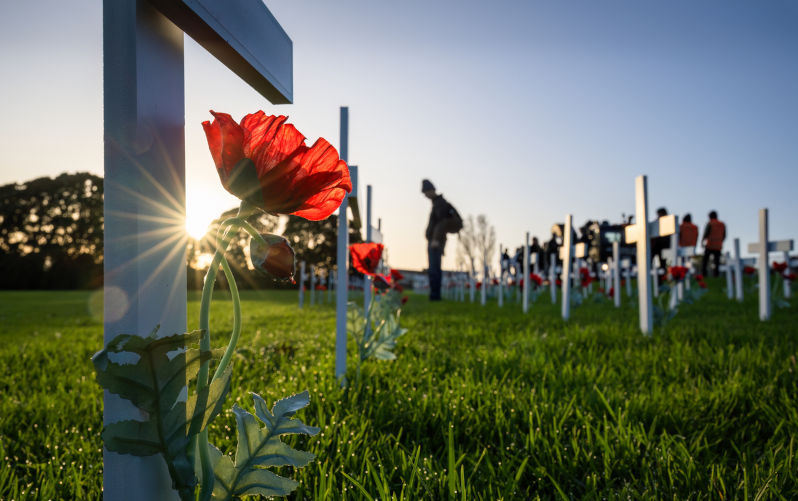
25 April 2025
Anzac voices – voices of warning
A shade over 110 years since the Gallipoli landings, Anzac Day is a day of mourning for many. Respect is due. And more. If we listen to the original Anzac voices, we may recognise voices of warning – relevant today.
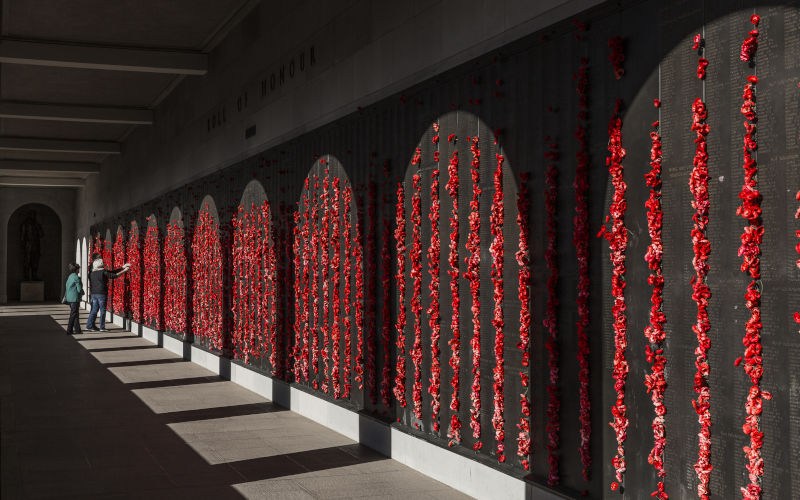
11 November 2024
“The lie in the soul”: True respect on Remembrance Day
While official speeches commonly cite ‘democracy’ among the causes for which Australians and our allies have always fought, we are free to wonder if that is not ‘the lie in the soul’ this Remembrance day.
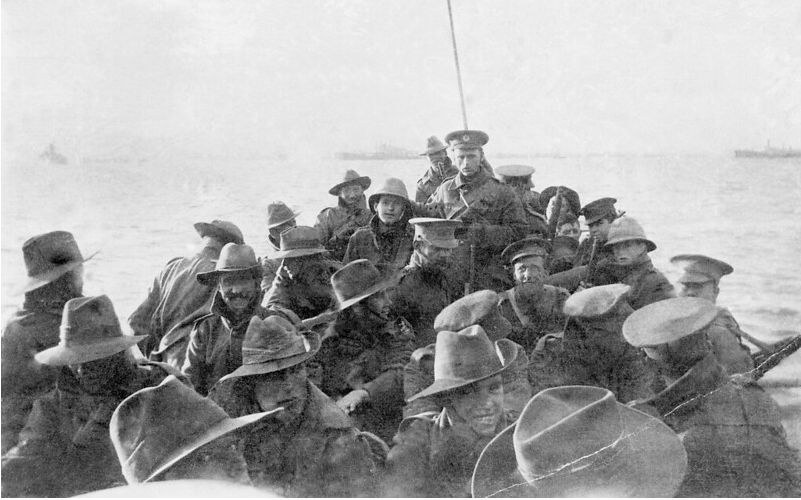
25 April 2024
‘Impactful projection’, 1915 style: Lest we forget Anzac Cove
Anzac Day. We mark it respectfully. True respect demands that we also not forget the essential question about the first ‘Anzac Day’ – 25 April 1915. Why were Australian soldiers at Anzac Cove in the first place?
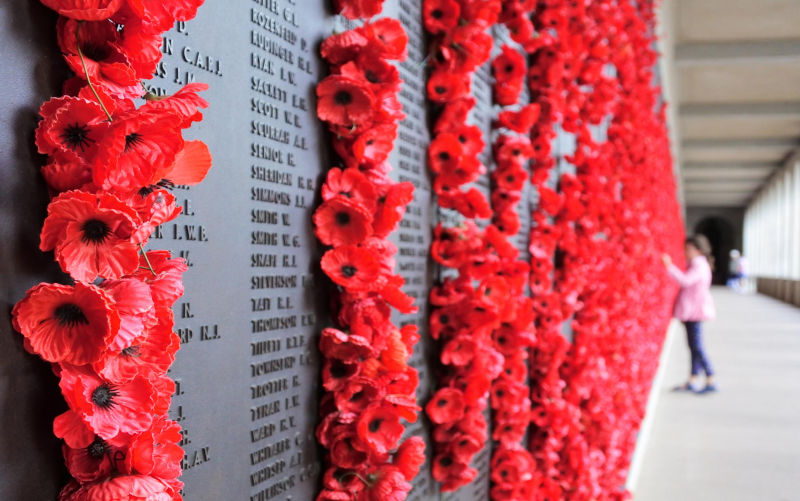
11 November 2023
Remembrance Day through the lens of Gaza and Ukraine
This Remembrance Day, the great juggernaut of war is crushing thousands. In Gaza and the Ukraine. In that context, we may reflect today on Australia’s role in the Great War.

2 March 2023
‘Dealers’, ‘bleeders’, and a negotiated peace in Ukraine
After a catastrophic year of war, there is talk of a negotiated peace in Ukraine. But those suggesting that it should be explored are often instantly slapped down. Familiar rhetoric is deployed. A negotiated peace is supposedly impossible – or dishonourable.

19 February 2023
War: truly the last resort for Australians?
If war is the last resort, why doesn’t our governance system enforce that condition? Will our War Powers be reformed in 2023?
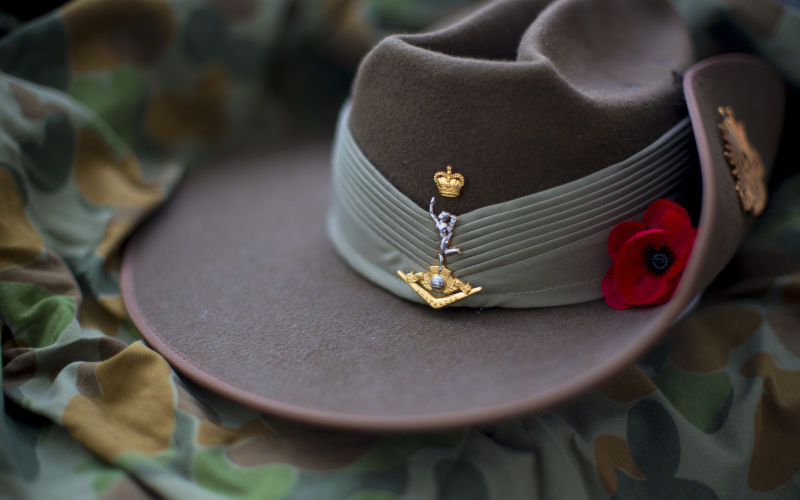
22 November 2022
Like Mary's lamb in Imperial Wars-how history rhymes
In the shadow of Remembrance Day, the calamity of war should haunt us. But sadly, contemporary debates regarding our defence policy rhyme uncomfortably with those heard during the slide to disaster before the First World War.
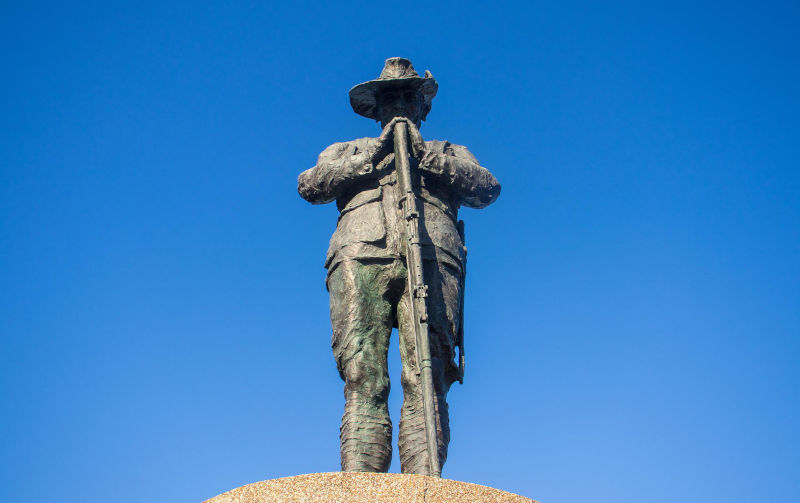
24 April 2022
The fantasy that haunts our cult of the fallen
According to the fantasy, there is a ‘moral obligation’ toward dead Anzacs – but not to democratise the decisions that would throw live Anzacs into war.
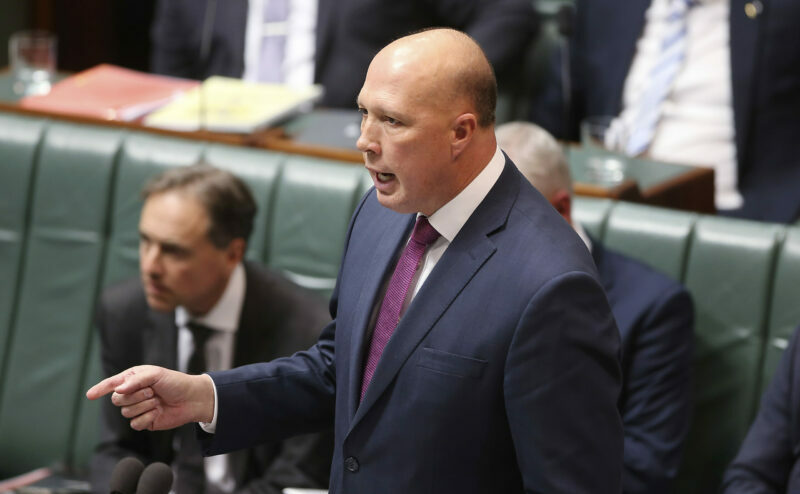
1 December 2021
Dutton leads us down a dangerous pre-World War I path
Peter Dutton's support for the US over China risks putting wind beneath the wings of Washington's hawks. We have been here many times before.
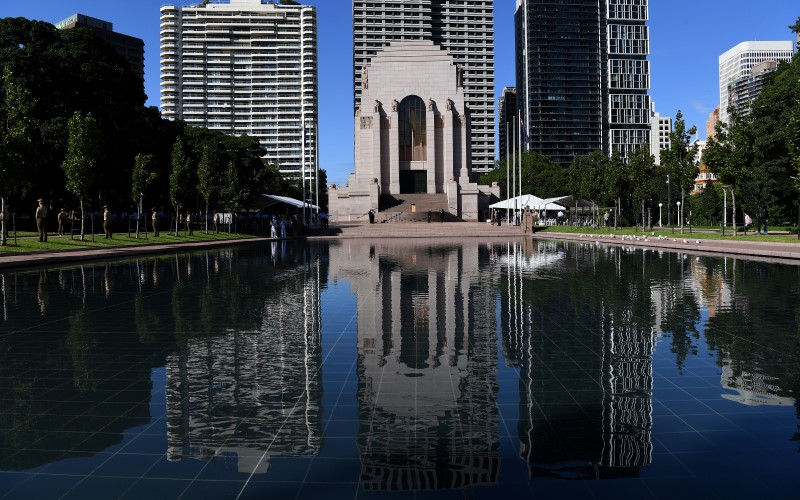
11 November 2021
Reflections for Remembrance Day: the right to question is incontestable
The first Anzacs challenged the reasons for war, so the federal education minister's insistence that Anzac Day cannot be 'contested' at school is political pantomime.
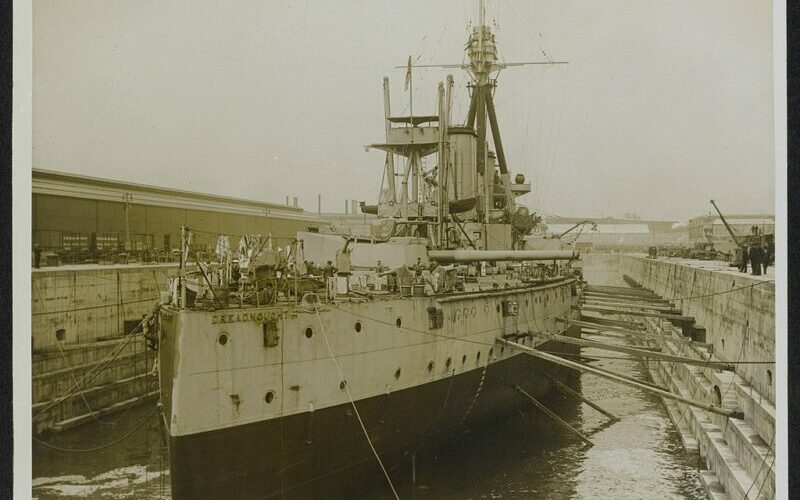
28 September 2021
Lest we forget: Lessons for AUKUS from the Anglo-German naval race
In the shadow of AUKUS, there are many echoes of debates from the era of the Anglo-German naval race, 1900 to 1914. Are there any lessons for us?
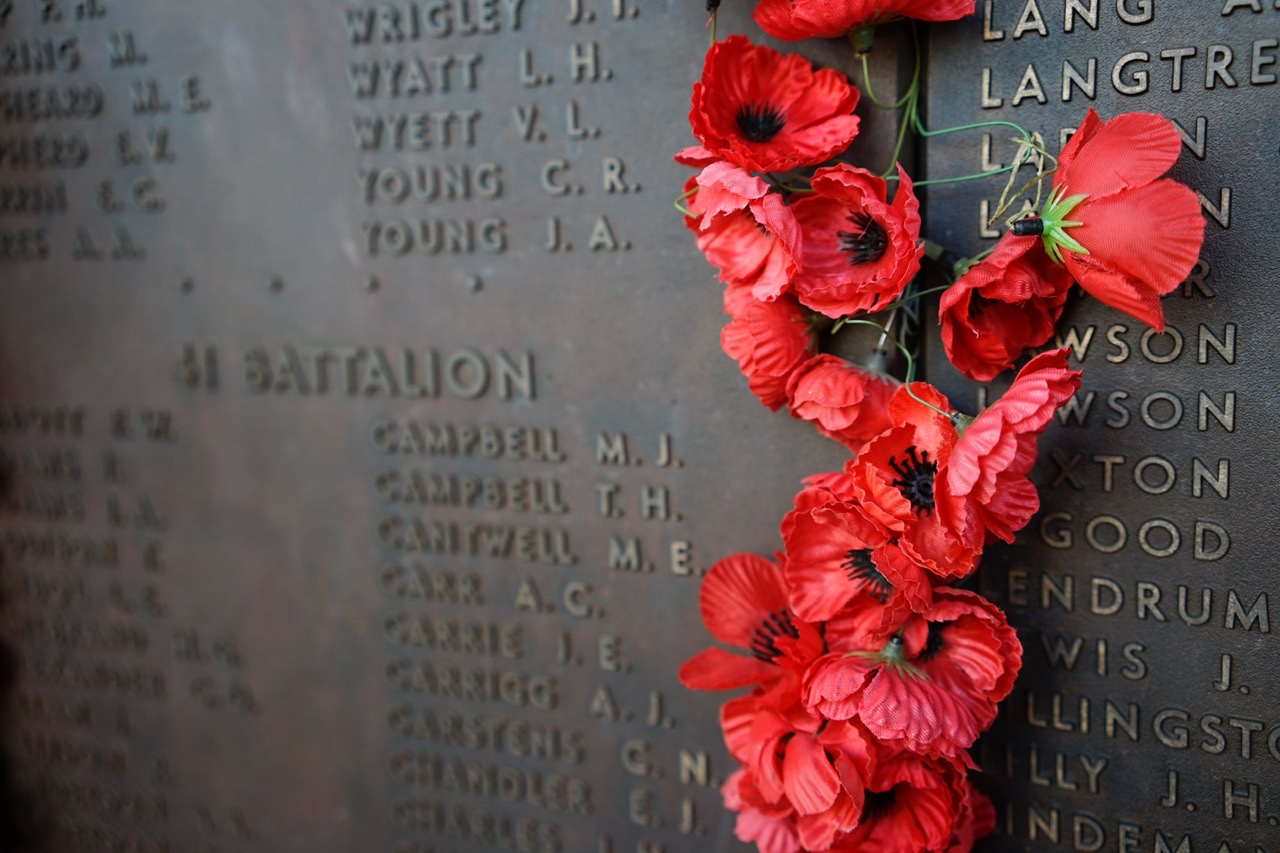
13 May 2021
Whitlam, Keating, Anzac, and the drums of wars past
I think the war against Hitler was justified. I don’t know whether the war against Wilhelm II was. Thus spoke Prime Minister Gough Whitlam in a BBC TV interview with Lord Chalfont recorded in September 1973, and aired in December. It was screened in Australia in early January 1974. The transcript is in the Whitlam Papers.
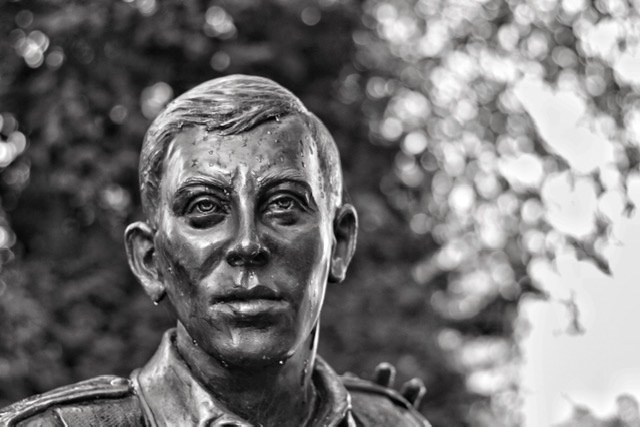
23 April 2021
How do we show true respect for the Anzacs?
First things first: let us remember and respect all those lost forever to the juggernaut of war, and all those crushed by it who still live with the trauma. But what does it mean to be truly respectful of our ‘Anzacs’? Should we focus unwaveringly on military achievement, or should we also probe fearlessly the origins, purposes – and sometimes the folly – behind our long history of expeditionary warfare?
11 November 2020
Armistice Day: Old Bones, Young Soldiers, Long Wars.
One hundred and two years after the first Armistice Day, as we survey the vast war cemeteries in our minds’ eyes, we may glimpse there a stark truth: then, as now, those who choose war go on to make old bones; too many of those who fight them go on to make neat little rows. That reality should haunt us all today.
23 April 2020
Thoughts for Anzac Day. ‘Never such innocence again.’
Anzac Day dawns. We acknowledge the heavy costs endured – the loss of life, the broken bodies and broken minds. We reflect, remember, and respect. There will be no big public gatherings this year – mercifully perhaps. Because these sometimes include elements of naivety that make us cringe.
11 November 2019
DOUGLAS NEWTON. Night Thoughts on the 100th Anniversary of the First Remembrance Day
A hundred years ago the victors marked the first anniversary of Armistice Day. Our own memorialisation of the war, then and now, has been mostly in the spirit of ‘Take a bow, Australia’. But we need to lift our eyes from our own narrow horizons and question our ingrained instinct for self-congratulatory narratives.
19 July 2019
DOUGLAS NEWTON. ‘Fine phrases … dark thoughts’. Reflections on the Centenary of ‘Peace Day’, 19 July 1 919.
It is one hundred years since ‘Peace Day’, Saturday 19 July 1919. On that day, celebrations were held across the British Empire to toast the great victory that had been won – supposedly crowned by the Treaty of Versailles. A hundred years later, shall we face up to some of the historic realities of the peacemaking in 1919, and of Australia’s role in the botched peace?
23 April 2019
DOUGLAS NEWTON. Reflections for Anzac Day. Why? How? To what end?
On this day, respect for our war dead, and for survivors, eclipses all. The rows of headstones afflict the mind. But real respect demands we reflect on the truly big questions: Why? How? To what end?
9 November 2018
DOUGLAS NEWTON. For Armistice Day: Lest we forget the realities of the Armistice
Armistice Day dawns. Supposedly, it marks ‘the end of the First World War’. It was not. There was no peace. Wars and civil conflicts continued to rage across Eastern Europe, Russia, and the Middle East. Moreover, the victors cruelly maintained the economic blockade of Germany during the eight-month armistice period. Hundreds of thousands of malnourished Germans perished. And Australia’s Prime Minister Hughes was there in London for the big decisions – worst luck.
6 November 2018
What are the real lessons of the First World War?
The Centenary of the Armistice of 1918 is almost upon us. There will be sincere and solemn events. But prepare also for a hurricane of media puffery, a cascade of clichés, narrow nationalism, the familiar medley of cheers and tears – and little serious attention to the real lessons of the First World War.
25 April 2018
Anzac Day: From respectful remembrance to festival of forgetting
Are our war memorials becoming sites for mere flag-waving? Should they feature exhibition halls boosting national pride in our military prowess? If so, Anzac Day itself risks descending into a Festival of Forgetting.
8 January 2018
DOUGLAS NEWTON. Beersheba - the Scramble for the Ottoman Empire- A REPOST From November 2, 2017
The centenary of the bloodshed at Beersheba this month is being used to bolster a narrow nationalist understanding of Australia’s First World War. Vital truths about the worldwide catastrophe that had enveloped countless millions by October 1917 are being obscured in a flood of media material that focuses almost entirely upon deeds of gallantry and dash. (Because of technical problems on Tuesday, I decided to repost this important article as some readers may have missed it.)
30 November 2017
DOUGLAS NEWTON. First World War Centenaries that really matter are looming
Centenary moments of huge significance are upon us: the centenary of the so-called ‘Lansdowne Peace Letter’ of 29 November 1917, and the centenary of the publication of the texts of the so-called ‘Secret Treaties’ in Britain, beginning on 12 December 1917. The possibility of peace was suddenly on the front page. Sensational diplomatic deals underpinning the war on the Allied side were exposed to the world. Will these centenaries be noticed in Australia? Or will we go on treating the centenary of the Great War as a chance to run again and again a kind of national ‘show-reel’ of battle...
11 November 2017
DOUGLAS NEWTON. Armistice Day – narrow nationalist naiveties and voodoo vindications of war
Every year, in the days leading up to Armistice Day, a little crop of opinion pieces appears urging Australians to do more than merely remember the dead of war. Various writers argue that we should also recognise the justice of the cause. These frankly nationalist opinion pieces are based on a naïve understanding of the Great War.
3 August 2017
DOUGLAS NEWTON. The Centenary of the Third Battle of Ypres
On 31 July 1917, one hundred years ago, Britain launched the Third Battle of Ypres on the Western Front. It would climax in the Battle of Passchendaele in November. During this centenary, will the Australian people be showered with stories of special valour? Or will there be more clear-eyed commentary? The catastrophe that unfolded in Flanders is an object lesson in what happens when an Australian government allows our Allies to dominate in the high diplomacy of war, exposing our own troops to horrific suffering – for dubious goals.
8 March 2017
DOUGLAS NEWTON. The “Political Correctness” – of the Right
In a recent speech to CEDA, John Howard denounced an “avalanche of political correctness”. In fact, Howard has helped promote a stifling version of political correctness – on the Right of Australian politics.
20 December 2016
DOUGLAS NEWTON. The forgotten and ignored German peace initiative of 1916.
Forgotten Great War Centenaries This month, truly important Great War centenaries are passing by quite unnoticed in Australia. A hundred years ago, diplomatic events occurred of far greater significance than any battle in which Australians fought. And – if true political wisdom and courage had prevailed – a negotiated peace might have been achieved, cutting short the orgy of mechanised killing.
28 October 2016
DOUGLAS NEWTON. The Slide to World War I. Shades of 1914 today?
Are there shades of 1914 in today’s international collisions? So much is different. Talk of ‘parallels’ is probably overstatement. But there are disturbing continuities. The setting in 1914 In 1914, the ‘Hobbesian’ fatalists who believe that nation states are always natural enemies, and that warfare is more or less inevitable, held sway in many nations. The megafauna in the jungle of vested interests, that is, the ‘defence’ industries and their bankers, were extremely powerful. They funded the lobby groups, the ‘think-tanks’ of the pre-1914 world, the army leagues, navy leagues, universal service leagues, and so on. These...
8 July 2016
DOUGLAS NEWTON. ‘A 100 Per Cent Ally’ – ‘Utterly Dependable’ - conscience washing.
The Chilcot report should prompt much heart-searching, and not only about Australia’s commitment to the Iraq War in 2003. It should prompt us to think about two long-standing problems: the use of the ‘war powers’ by the Executive, without any requirement to consult parliament; and the broader issue of balancing Australia’s interests in her alliance relationships. In essence, two questions should haunt us. First, should our decision to go to war be made by handfuls of people at the centre of power? Second, do we as a people so crave the approval of powerful allies that we should plunge our...
7 May 2016
Douglas Newton. The Centenary of the Great War – and Anzac
The Great War. What we fought for and why were peace initiatives resisted for so long. Many of those promoting the Anzac Centenary appear to believe that there are certain essentials the Australian people must learn about the Great War: that Australians fought exceedingly well; that they fought even better when led by Australians; that in fighting so well they gave birth to our national consciousness; that we owe them so much because they fought for our freedom; that in serving our country they displayed the values of the Anzac Spirit that define the Australian character – a fierce...
4 May 2016
Douglas Newton. Lost opportunities for a negotiated peace during the Great War: from 1917 to 1918. Part 2.
During 1917-1918, the Australian divisions in France endured casualties far worse than at Gallipoli. There were huge losses.[1] New evidence shows that ‘four out of five’ of the AIF who survived were affected by disability of some kind.[2] Yet, for contemporary Australians, it is battle-honours that leap to mind, especially Villers-Bretonneux. This is scarcely surprising, considering the money being spent. The lesson hammered home in the Anzac centenary is quite simple: war is a bad but necessary thing – so it is just as well that Australians are so good at it. This is to keep Australians locked in...
3 May 2016
Douglas Newton. Lost opportunities for a negotiated peace during the Great War: from 1914 to 1916. Part 1
A big centenary is approaching: the battle of Villers-Bretonneux, April 1918. Right now $93.2 million is being spent on the battle site to build the Sir John Monash Centre, ready for Anzac Day 2018.[1] Villers-Bretonneux is irresistible. It simplifies everything: German invaders, liberating Australians, grateful French. But it will provide a mere pinhole on the war, obscuring the big picture. No one at the opening ceremony is likely to ask: Why were millions of men, including Australians, still struggling on the Western Front in April 1918? The centre is likely to teach one lesson: the war was awful,...
2 May 2016
Douglas Newton. What we fought for: from Bullecourt to the Armistice, 1917-1918
From 1916 to 1918 on the Western Front, the Australian divisions suffered 181,000 casualties, including 46,000 dead.[1] Some 10,892 of these dead have no known grave.[2] They died mostly from shrapnel and high explosive shells designed to tear people to pieces, or bury them alive. Pulverised, or ploughed under, their remains were unidentifiable. So, more terrible centenaries loom from 1917-18. Bullecourt, Passchendaele, Villers-Bretonneux, the Hindenburg Line. For what did Australians die? To repel the German invader? It is simplistic to see in the German enemy a singular evil, a complete explanation for the protracted war, or a vindication...
29 April 2016
Douglas Newton. What we fought for: from Gallipoli to Fromelles, 1914-1916
Formal speeches about Australia’s Great War normally follow simple rules. The focus is upon military achievement, and defining national values – service, sacrifice, and mateship. Hardship and horror are added, giving lustre to military achievement. National awakening is emphasised: the diggers were ‘the founding heroes of modern Australia.’[1] Audiences are flattered: the Anzacs were ‘our mighty forebears.’[2] But the objects of that war – the ‘war aims’ for which so many Australian lives were lost – are seldom mentioned. Ignorance of purposes is assumed. ‘Few of us can recall the detail,’ Tony Abbott told the Gallipoli Dawn Service in...
20 April 2016
Douglas Newton. The hard questions we should face on Anzac Day 2016.
On Anzac Day 2016, the centenaries of 1916 should loom large. In April 1916, the Australian divisions that had been mauled at Gallipoli were being despatched to the Western Front. The industrialised kill-chain at the Somme awaited them. Other centenary moments from 1916 are coming: of diplomatic deals that escalated the war, and of lost opportunities to end the war. The cataclysm of that war for Australians ought to prompt hard questions – beyond the nationalist obsession over whether ‘the mettle of the men’ shone bright on the battlefield. Why were Australians so exposed in this protracted catastrophe?...
6 November 2015
Douglas Newton. Australia’s Leap into the Great War.
One of the great clichés of Australia’s entry into the Great War is that Australia stepped up to ‘answer the call’ of the Mother Country. Much of the press coverage of the centenary of Anzac repeats this claim and adds a nationalist frosting: our entry into the Great War was a moment of national awakening. The facts fly in the face of this. Australia did not ‘answer the call’ in August 1914 – Australia jumped the gun. It was not a stand-tall moment of national awakening but of willing imperial subservience. At the heart of the story of Australia’s...
